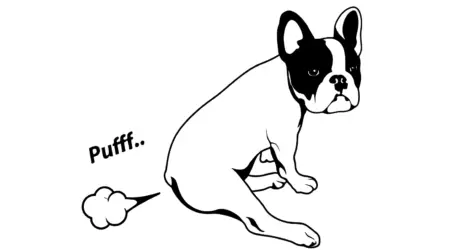Do Havanese Like To Cuddle? Helps & Guide
Havanese dogs, with their charming demeanor and fluffy coats, have captured the hearts of dog lovers worldwide. Beyond their adorable appearance, these dogs are known for their affectionate nature and sociable personalities. Among the many questions prospective owners may have, one often stands out: Do Havanese dogs enjoy cuddling?
Understanding the cuddling preferences of Havanese dogs not only enriches our bond with them but also sheds light on their complex emotional world. In this blog post, we delve into the depths of Havanese behavior to unravel the truth behind their penchant for cuddles.
Understanding the Havanese Breed
Havanese dogs trace their roots back to the sunny shores of Cuba, where they were cherished companions of the island’s aristocracy. Bred for their affectionate nature and lively disposition, Havanese quickly became known as the “Velcro dog” for their tendency to stick by their owners sides. Their compact size, silky fur, and expressive eyes make them irresistible to dog lovers of all ages.
Beyond their charming appearance, Havanese possess a remarkable temperament characterized by intelligence, adaptability, and a playful demeanor. They thrive in human company and are known for their social skills, often forming strong bonds with their families. Despite their small stature, Havanese dogs have big personalities, exuding confidence and charisma in every interaction.

The Importance of Affection in Canine Behavior
Building Bonds and Trust: Just like humans, dogs are social creatures who crave connection. Physical touch, like petting, hugging, and cuddling, releases feel-good hormones like oxytocin in both humans and dogs. This chemical cocktail strengthens the bond between you and your pup, fostering trust and security.
Reducing Stress and Anxiety: Our canine companions can experience stress and anxiety in various situations, from loud noises to being left alone. Affectionate interactions, like gentle petting or simply being in your presence, have a calming effect, lowering their stress levels and promoting a sense of safety and comfort.
Cuddling Behavior in Havanese Dogs
Natural Affection:
Havanese are bred to be companion dogs. They develop close relationships with their families and thrive on social engagement. This inherent desire for closeness translates into a strong tendency to cuddle.
Comfort Seekers:
These small dogs crave warmth and security. Cuddling up next to their humans provides them with both, creating a sense of safety and comfort.It feels reassuring and warm, like an embrace that declares, “I’m here, and I love you.“
Communication Cues:
Havanese often express their affection through cuddling. They might curl up on your lap, snuggle next to you on the couch, or lean in for a gentle head-on-lap nudge. These are all signs that your Havanese is seeking your company and wants to show you how much they care.
Research Insights and Expert Opinions
Scientific Studies & Research
- Oxytocin Release: Numerous studies demonstrate that physical contact with dogs, including cuddling, stimulates oxytocin release in both humans and dogs. Known as the “love hormone”, oxytocin plays a crucial role in bonding, attachment, and reducing stress (see [Social Workers’ Desk Reference]).
- Cardiovascular Health: Research points to a potential link between dog ownership and improved cardiovascular health, with petting and interaction contributing to lower blood pressure and heart rate levels.
- Mental Health Benefits: Cuddling with a dog can offer comfort and security, reducing anxiety and promoting emotional well-being in humans. Interaction with a therapy animal is proven to be beneficial in various therapeutic settings.
tion. Pay attention to your Havanese’s signals, and respect their preferences to ensure a positive experience for everyone involved.
Addressing Misconceptions and Concerns
Myth #1: Cuddling Spoils Dogs
Fact: Cuddling, when done appropriately and respectfully, doesn’t spoil your dog. It strengthens the human-animal bond, provides comfort and security, and can even contribute to their well-being. However, excessive pampering or giving in to all their demands can indeed lead to unwanted behaviors.
Myth #2: Cuddling Encourages Dominance
Fact: Dominance hierarchies are not typically a concern in well-socialized pet dogs. Cuddling is more about companionship and affection. Encouraging dominant behavior often involves allowing your dog on furniture without permission, ignoring their growls, or letting them exhibit resource guarding.
Myth #3: Cuddling is Unhygienic
Fact: While maintaining good hygiene is important, cuddling with a regularly bathed and groomed dog poses minimal health risks. However, individuals with compromised immune systems or allergies might want to consult a healthcare professional before engaging in close contact with pets.
Also Read: Do Havanese Bark A Lot? Helps & Guide
Brief
The cuddling behavior of Havanese dogs is a natural expression of their affectionate nature and strong desire for companionship. Through research insights, expert opinions, and practical tips, we’ve gained a deeper understanding of the factors influencing their cuddling tendencies and the importance of nurturing positive relationships between dogs and their human companions.
By respecting their boundaries, creating a cozy environment, and incorporating positive reinforcement techniques, we can create rewarding cuddle experiences that strengthen the bond between us and our beloved Havanese companions, enriching both our lives with love, warmth, and companionship.












Comments (2)
This site is fabulous. The radiant material shows the essayist’s enthusiasm. I’m dumbfounded and envision more such astonishing presents.
This website is amazing. The excellent content demonstrates the creator’s passion. I’m in disbelief and hope to see more of this incredible content.